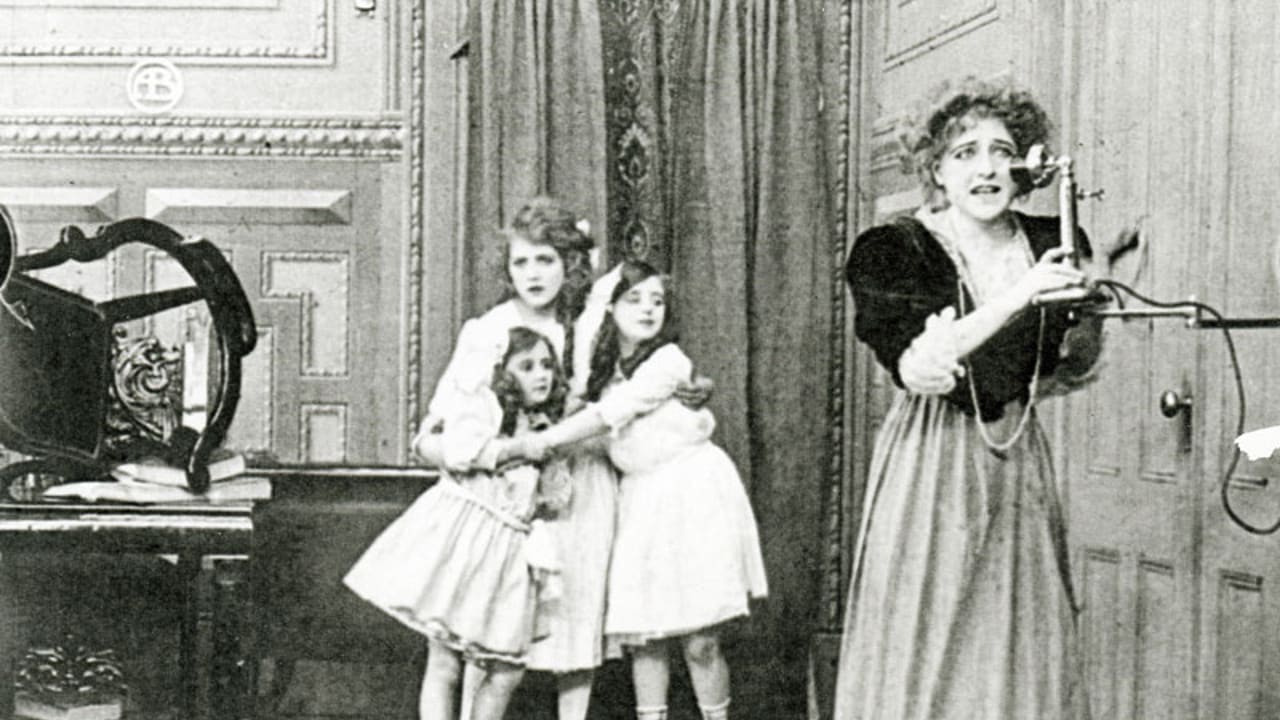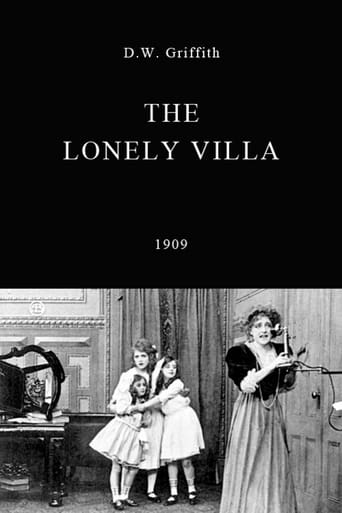

The Worst Film Ever
... View MoreBeautiful, moving film.
... View MoreIf the ambition is to provide two hours of instantly forgettable, popcorn-munching escapism, it succeeds.
... View MoreA film with more than the usual spoiler issues. Talking about it in any detail feels akin to handing you a gift-wrapped present and saying, "I hope you like it -- It's a thriller about a diabolical secret experiment."
... View More"Thank God, they're saved!" said a woman behind us at the conclusion of the Biograph film bearing the above title. Just like this woman, the entire audience were in a state of intense excitement as this picture was being shown. And no wonder, for it is one of the most adroitly managed bits of bloodless film drama that we have seen. From the moment the picture starts all is expectancy. Indeed, when we saw the picture at Fourteenth street, the house literally "rose" at the story, it is so closely, effectively and convincingly told. As good a piece of sharp, rapid, decisive, dramatic work as we have seen. As is usual nowadays, with all Biograph stories, and the Biograph Company certainly have the art of getting hold of good stories, this one is finely photographed. The acting, too, is of a high order. The villains are villainous, the husband very realistic in his agony, especially at the telephone, whilst the Biograph heroine is as handsome and graceful as ever. We really felt inclined to kick that burglar man for so unceremoniously stripping the jewels from this fair lady's neck. "Lonely Villa" is another Biograph success. – The Moving Picture World, June 19, 1909
... View MoreI'm not going to rate this short film because it's more than one hundred years old, so how can we judge it properly? (Was Napoleon a better general than Alexander the Great?) In 1909 the automobile and telephone had only just stopped being novelties. Films themselves were primitive. No roofs, so the shots could use available light. Most of the elements of a modern film are there -- a camera, sets, actors, cross cutting -- but too many are missing -- sound most of all.It's a melodrama in which a man, presumed to be a doctor, is called away from his home by a false alarm from three thieves. Once the pater familias is out of the house, the three sneaky-looking robbers break into the back room where the safe is. They have to force their way through three -- count 'em, three -- locked or barricaded doors. The terrified wife and the three lovely little daughters in white huddle together. Two of the miscreants make a bee-line for the safe, while the third assaults the wife.The helpless family is save by deus ex telephone, that marvelous and mysterious invention, for which this film is a kind of advertisement, like Dirty Harry's .44 magnum. The head of the house and some friends burst in and nab the robbers. Fade out on the father with his arms around his shivering but now safe family.The story reflects the values of D. W. Griffith, and the prevailing values of the period for all I know. I was just a child at the time. The wife is almost as helpless as the little tykes (all female). They need a man to protect them. Grown women are pure. Children are even purer -- pristine, in fact, or else why are they all dressed in white? There are good guys who are men of honor and there are bad guys, with little in between "good" and "evil". Things were only a bit more complicated by 1915 and "The Birth of a Nation." This short film is an historical curiosity, true, but carry me back to 1909. If only issues were quite as clear as the movies -- then and now -- make them out to be.Oh, also, at one on-line site at least, while you watch this, you're treated to a great rendition of Bach's magnificent and aptly dramatic Toccata and Fugue in D Minor.
... View MoreThree burglars (Owen Moore, Herbert Prior, and Anthony O'Sullivan) lurk outside the Cullison estate. When the family butler and maid leave on a date, the burglars trick master-of-the-house David Miles (as Robert Cullison) into vacating the premises; Mr. Miles doesn't know it, but the lurking trio are planning a robbery. After Miles leaves, the thieves terrorize helpless Marion Lenard (as Mother Cullison) and the three Cullison girls - Mary Pickford, Gladys Egan, and Adele DeGarde. As the burglars bust in, Ms. Leonard's uses her telephone to desperately call for help For its time, "The Lonely Villa" likely packed an audience pleasing punch; but it's rather ordinary, when compared to director D.W. Griffith's later revisitations of its story/situation. The location footage is a highlight, and the cutting of the Cullisons' telephone cord is a nice touch. Ms. Pickford, with her relatively small stature, makes a convincing little girl. Real little girl Egan shines as the first Cullison who notices something is not quite right **** The Lonely Villa (6/10/09) D.W. Griffith ~ David Miles, Marion Leonard, Mary Pickford
... View MoreThis is a good example of an idea that Hollywood uses nowadays. Panic Room was an attempt to make this into a full length film, but it dragged too much to be very exciting. But this short silent film shows the same plot, but without all the unimportant excess. What is left is the original, good idea, and that makes up the whole film. Suspense is retained throughout. Quality film making and innovation that is all too rare now, almost 100 years later.
... View More